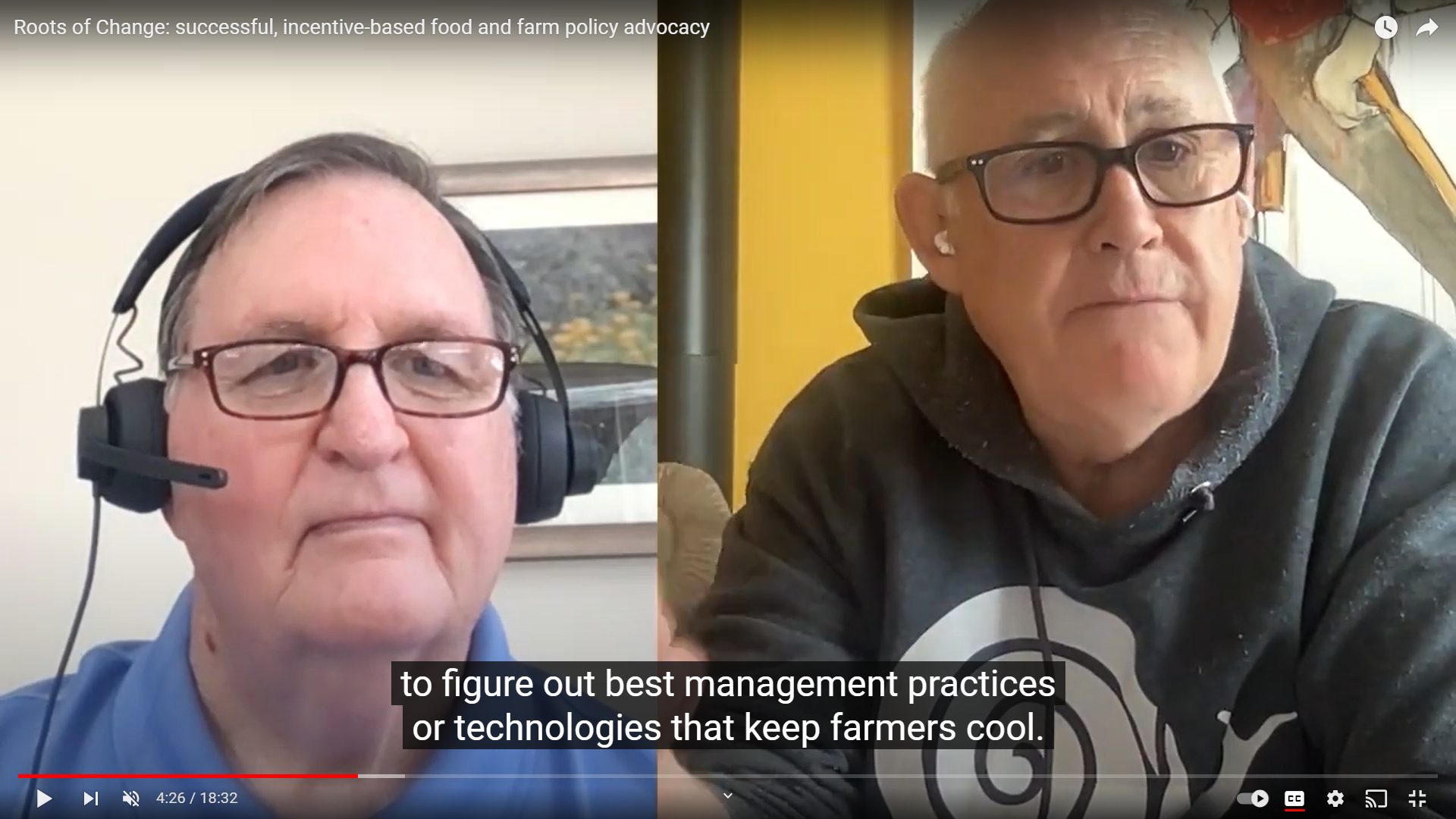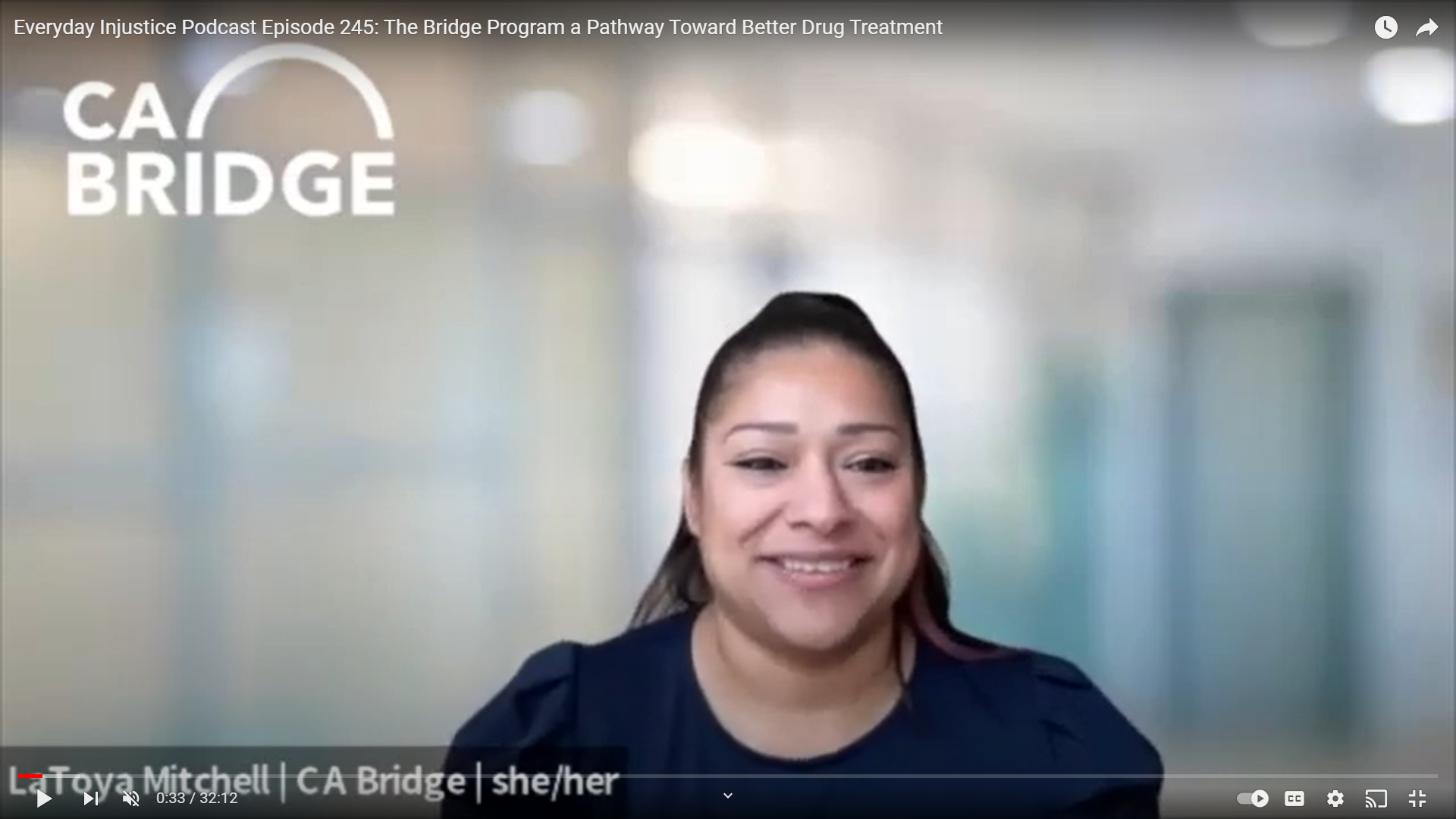Podcast: Flipping the Table
PHI’s Michael Dimock hosts dynamic and enlightening conversations with people who are flipping the table to create new ways to feed the world.
Honest conversations about food, farming and the future
Food production causes more damage to the planet than any other human activity, contributing to global warming, lost biodiversity, degraded soil, water, air and rural economies and epidemics of diet-related disease.
This podcast, hosted by PHI’s Michael Dimock, presents dynamic and enlightening conversations with people who are flipping the table to create new ways to feed the world. Their ideas will inspire action and positivity in our challenging times, and appeal to listeners and sponsors who strive to create healthy and resilient people, communities and economies.
Michael Dimock is director of PHI’s Roots of Change, a think tank-and-do tank working to ensure emergence of a sustainable food system in California.
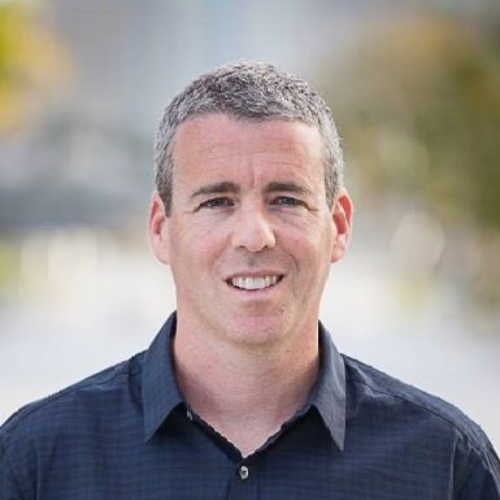
S7 Ep6 - Investigative journalist and author Michael Grunwald’s new book ostensibly argues for industrial agriculture, but does it really?
Feeding the world without killing it is very hard to do. Figuring it out is as important as producing energy without fossil fuel. Author Michael Grunwald has his views on how and our podcast host has his. Their conversation points the way to end the polarized views on our great challenge. They find common ground among the so-called regenerative, organic, and industrial approaches.
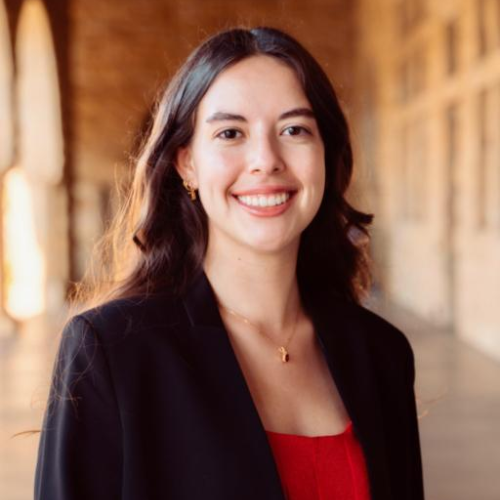
S7 Ep5 - Coco Sanabria Guest-Host with ROC’s Summer GenZ Team
GenZ, or those in their 20s, are the future of the good food movement. They are clearly critical to the future of food. Flipping the Table’s new co-host Coco Sanabria engages 3 of the 4 ROC Summer GenZ Team to explore their values around food and agriculture, their reasons for wanting to work on food systems with Roots of Change and the college food experience.

S7 Ep4 - The Spirit of Resilience: Farmer Stuart Woolf and his Vision for the Future
Stuart Woolf, among California’s largest farmers and Executive Chairman of Woolf Farming Company, has a vision for the heart of California’s Great Central Valley. And agave, the hearty cousin of the tasty asparagus plant, is central to that vision. We talk of Stuart’s interesting journey, his family’s regenerative practices and his fascination with and enthusiasm for agave’s resilience in a drying valley and its distilled spirits that could create a whole new industry in the Golden State.
S7 Ep3 - Finding the Radical Center: How the California Roundtable on Agriculture & the Environment (CRAE) fostered trust and unleashed creative solutions at the intersection of agriculture and ecosystems
Six participants from the 20-year dialogue between aggies and enviros, known as the California Roundtable on Agriculture & the Environment describe what it did, how it did it and why is made their lives as leaders and the state better.
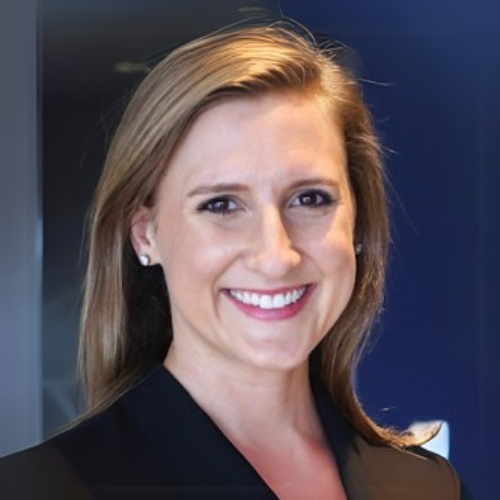
S7 E2 - Helena Bottemiller Evich from Food Fix shares her views on Trump nominees RFK Jr. & Brooke Rollins and the striking possibility of realignment around food policy in Washington DC. February 18.
After 15 years on the federal food and agriculture policy beat, perhaps no other American of her generation has a better perspective on what might or might not happen under the new Administration. RFK Jr and the MAHA movement are having an impact. What could it all mean?
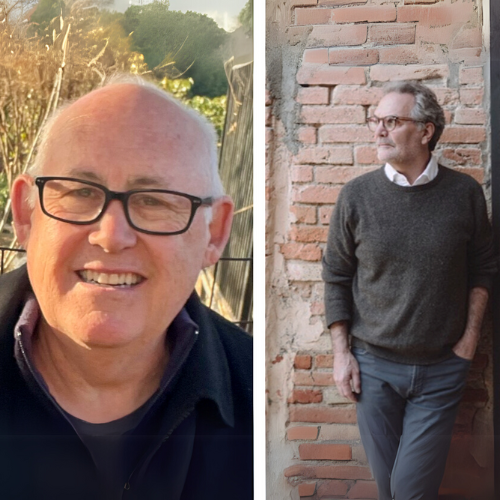
S7 Ep 1: Food Fight Author, Dan Imhoff, Flips the Table on Our Host Michael Reid Dimock
The author, musician, homestead farmer, and host of the Full Expression podcast Dan Imhoff flips the table on Michael Dimock to explore the origins of Michael’s interest in and career path within the good food movement.
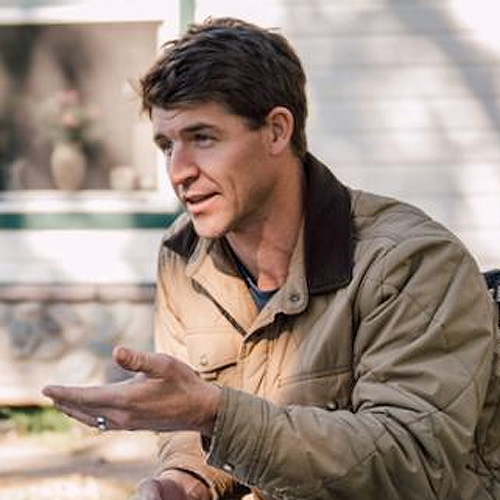
S6 Ep8 - Cole Mannix, Old Salt Co-op, On Improving the Land and the Lives of Those Who Raise Good Meat for Montanans
Cole Mannix’s family has ranched in the Black Foot Valley of Montana since 1882. Even with thousands of acres and hundreds of cattle, the return on investment is bleak. Learn how his family and four other ranches have come together to create the Old Salt Co-op and beef brand with two restaurants, online sales and an annual ranch event all in order to ensure these agrarian families thrive rather than just survive.
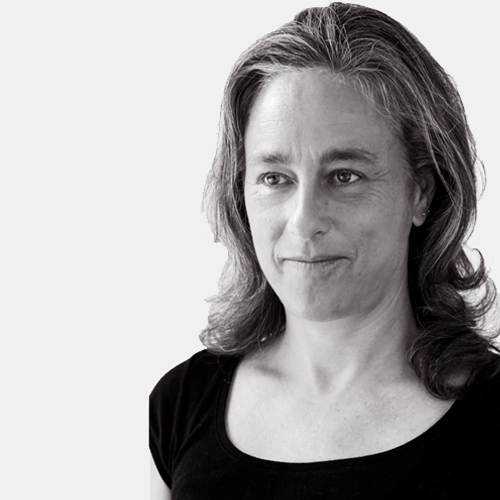
S6 Ep 7 - Lisa Hamilton, Author of The Hungry Season & Deeply Rooted, on the Strength and Power of Uncommon Agrarians
Michael talks with Lisa Hamilton, a great chronicler of uncommon agrarians, and the author of the new book, The Hungry Season. Agrarians are those who live from working in agriculture. With only 2.2 million agrarians are less than 1% of the US population. These few feed our nation and much of the world. An even smaller percentage of those few farm or ranch outside the mainstream, the conventional commodity system.

S6 Ep6 - Dairy in California: Opportunities and Challenges Today and Tomorrow
Nutritionist and leader of the Dairy Council of California, Amy Delisio and dairy
farmer from Humboldt County, Cody Nicholson Stratton, dialogue with Michael around the opportunities and challenges related to nutrition and the environment faced by California’s gargantuan dairy industry.
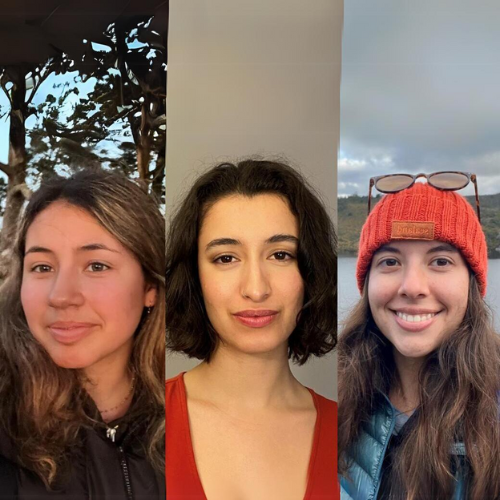
S6 Ep 5 - Three Gen Zers Speak their Minds About Food, Farming and the Future
In this episode, host Michael Dimock speaks with three members of “Gen Z” to explore how the passions of their generation might be challenged to in efforts to change our food and farming system.
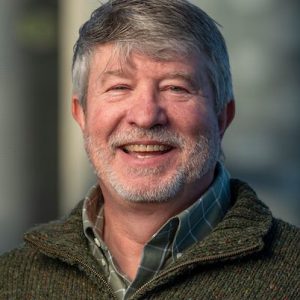
S6 Ep 4 - From the Rice Fields of California One Sees the Future of Agriculture
Tim Johnson, CEO of the California Rice Commission, shares how rice growers are modeling the future of agriculture by delivering a fabulous array of ecosystem services, wealth creation and delicious, healthy food for California and the world.
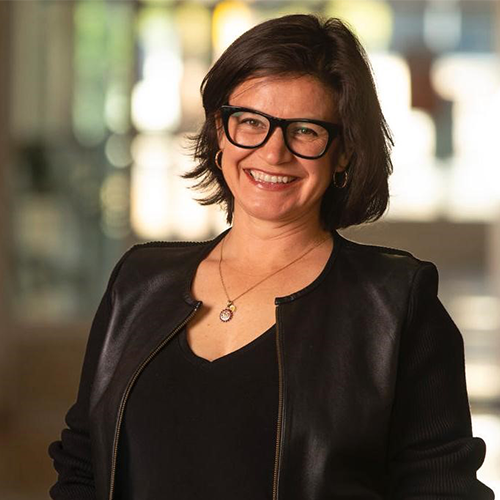
S6 Ep 3 - Alegria De La Cruz: a Weaver and a Warrior for Equity and Justice
Alegria De La Cruz has a history of creating spaces and moments for farmworkers and other historically marginalized Brown and Black people to engage the powers that be: employers, judges and policy makers. She does this with grace, impeccable logic and a desire to be fair with all stakeholders. She and Michael reveal the story of her incredible journey from Delano, California and the center of the United Farmworkers leadership to Sonoma County, where she directs the Office of Equity at a turbulent time when grape growers and farmworkers are deeply polarized.
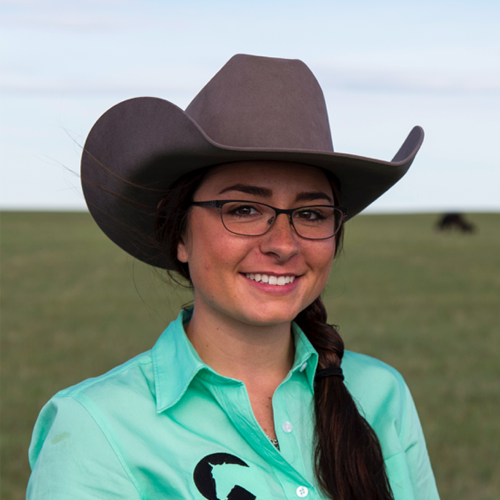
S6 Ep 2 - Kelsey Ducheneaux-Scott: An Inspiring Indigenous Millennial Working to Heal our Land Through Stewardship
As 30-year-old Native American rancher, mother and nonprofit leader, Kelsey Ducheneaux-Scott reflects the power of the millennial generation born between 1981 and 1996. Indigenous knowledge, the future of food and her role in the film Common Ground are deeply explored in this episode.
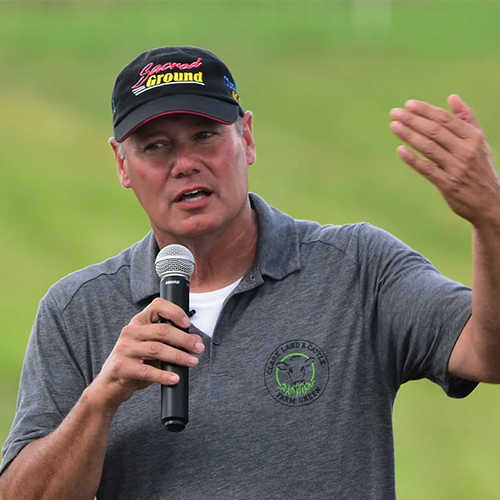
S6 Ep1 - Rick Clark, a Large-Scale Midwestern Regenerative Organic Farmer from Indiana
A 5th generation commodity crop farmer from Indiana, the Heartland of America, Rick Clark had an awakening during a one-inch rain event in 2007 that washed topsoil from his fields. That moment spawned a ten-year journey during which Rick created rich healthy soil that captures carbon and holds water, diversified his crops and increased his profits. This success placed him at the center of the film Common Ground. As the film says, Rick “cracked the code” of large-scale organic regenerative farming.
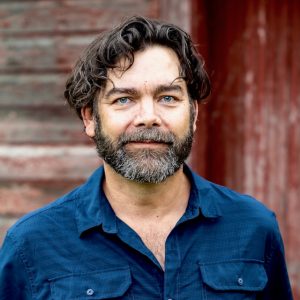
S5 Ep 12 - Jim Kleinschmit of Other Half Processing and the Growing GRASS Climate Smart Commodities Partnership Project
Farm boy and entrepreneur Jim Kleinschmit started a company called Other Half Processing to ensure that the hides and other byproducts from cattle and bison production are fully utilized. When USDA began its funding campaign to promote regenerative agriculture, he hatched an idea that has bloomed into a $35 million project to build lucrative markets in Europe and beyond for hides and more livestock byproducts.
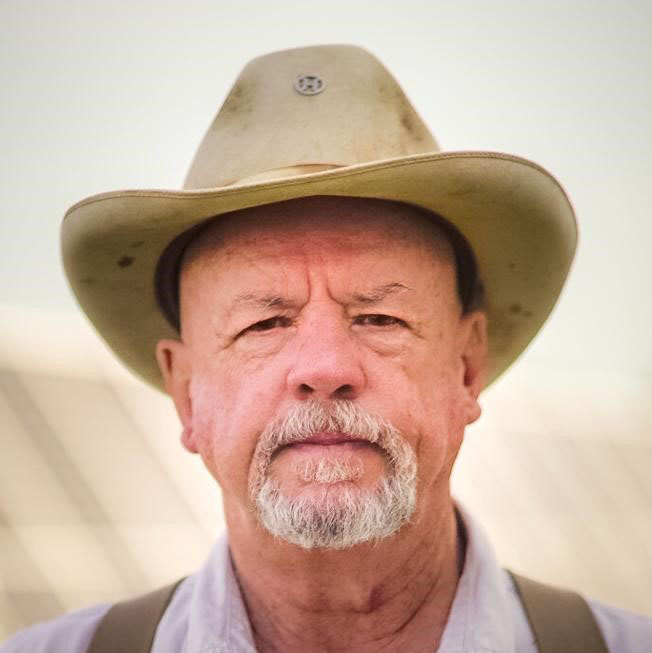
S5 Ep 11 - Will Harris Regenerates An Entire Community Through White Oak Pastures
After decades of economic decline around the Harris family’s farm, Will experienced an epiphany that led to a journey to what we now call regenerative agriculture. His story is about a pioneer’s
perseverance, love for animals, the land and a community. His example could transform rural America.
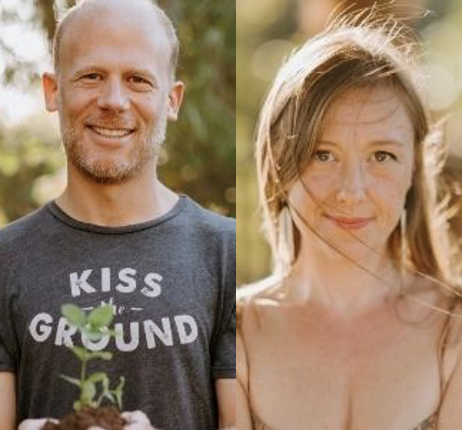
S5 Ep 10 - Filmmakers Josh and Rebecca Tickell Share Their Story of the Making of Common Ground and Why Regenerative Agriculture Must Become the Norm
Josh and Rebecca Tickell produced and directed the newly released film, Common Ground. It is a compelling look at the expanding acceptance of regenerative agriculture as an antidote to many of the challenges faced by farmers, ranchers, consumers and policy makers. Josh and Rebecca share about why they included a powerful diversity of voices and perspectives to compelling convey their hopes for regenerative agriculture. They describe it as a love letter to all our children as well as a call to the nation’s farmers to embrace regenerative agriculture as the future.
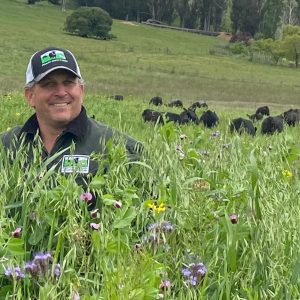
S5 Ep 9 - The Long Strange Trip of Loren Poncia of Stemple Creek Ranch
Hear how Loren Poncia, a former Monsanto sales rep, became a model
regenerative rancher. He and his wife faced the omnivore’s dilemma to transform the family dairy into a multimillion dollar iconic grassfed organic meat brand.
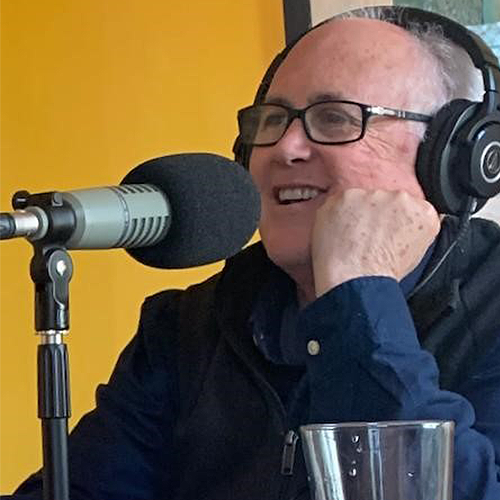
S5 Ep 8 - The Good Food Movement Is Advancing More Quickly Each Year
For the 100th Episode of Flipping the Table, Michael shares his perception of the advances being made by those seeking a healthier, resilient and just food system. He makes the case for remaining optimistic about our future.
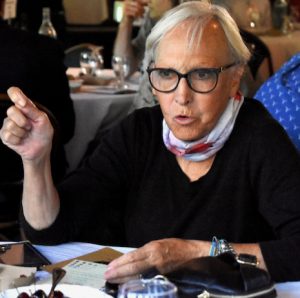
S5 Ep7 - What does Grassfed Meat Really Mean
Grassfed, grass finished, pasture raised are all terms you see on meat and dairy packages these days. But what do they actually mean? Can they be trusted? Michael Dimock dives into this question with Carrie Balkcom the executive director of the American Grassfed Association. AGA is the nation’s singular independent certification program that confirms livestock are fed only their natural diet for their entire lives.

S5 Ep6 - Deep Connections: Healthy Soil Leads to Healthy Plants, Animals and Humans
Spencer Smith is a self-described soil nerd who has raised livestock his whole life. He believes California is a great place to produce grass-fed beef. His goal as a consultant is to help livestock producers optimize the health of their land in order to ecologically, humanely and profitably manage businesses that deliver healthy food for humans.
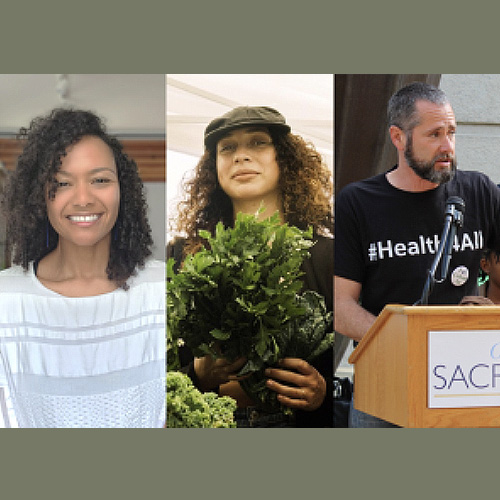
S5 Ep5 - Will California’s Nutrition Incentive Program (CNIP) live on?
Since 2016, California has provided $30 million in matching funds to attract nearly the same amount from the USDA in order to provide SNAP families with matching dollars to support their purchase of healthy fresh and organic produce. Minni Forman, Valeria Velazques Duenas and Shawn Harrison, who manage nutrition incentive programs in their communities, share their work and the impact of both CNIP and the Market Match promotion of incentives offered at over 200 farmers markets and farms stands in California.
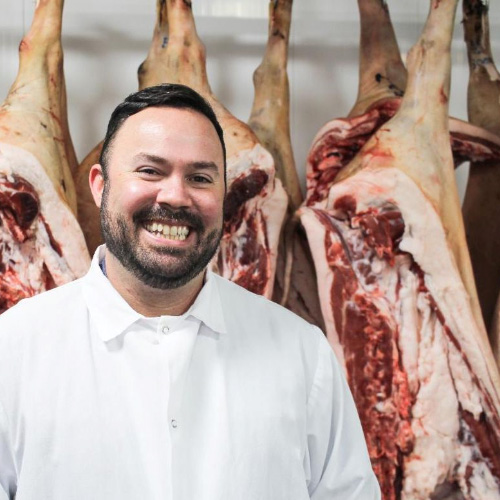
S5 Ep 4 - Providing the Missing Middle Link in Creation of West Coast Regional Regenerative Meat Supply Chains
In the national effort to reanimate local and regional meat supply chains serving primarily organic and regenerative ranchers, the key is a what is known as a “cut and wrap facility.” These are where animal carcasses are skillfully cut into steaks, chops and roasts and ground into burger and hot dogs sought by shoppers, restaurants and cafeteria food providers. Cream Co, founded by Cliff Pollard, fills this vital niche on the nation’s west coast.
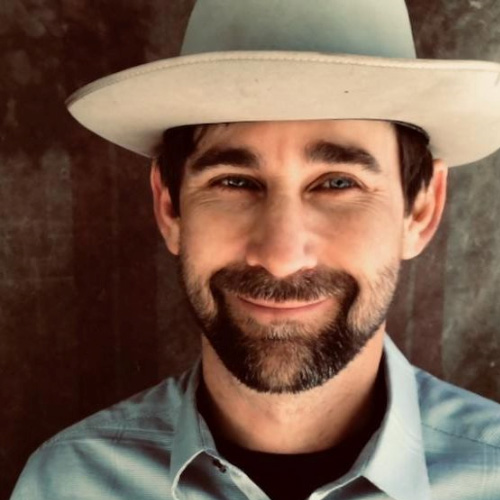
S5 Ep 3 - Jacob Katz, Senior Scientist for the Nonprofit California Trout, Describes how Flexible Farmers are a Solution to Major Endangered Species Problems.
California has declared that species diversity is a major environmental goal. After 150 years of intensive agriculture, achieving that goal is a challenge, but there is a great example underway on the Sacramento River where endangered salmon are being saved by proactive rice farmers. Learn about the Nigiri Project to see an approach that has implications for crop and livestock operations across the state and the nation.
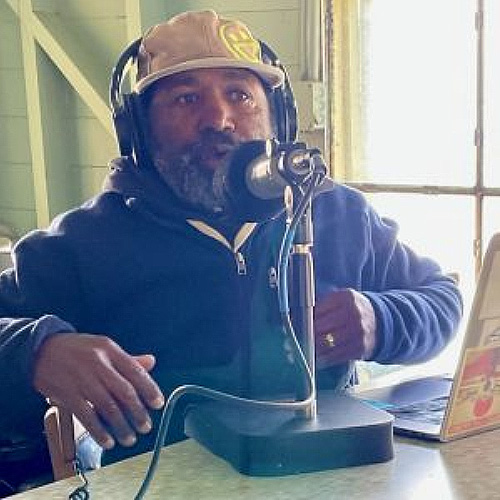
S5 Ep2 – Leonard Diggs and the Regenerator Project on cultivating the next generation of women and BIPOC farmers and ranchers
We need more farmers and many of them must be women, Black, Indigenous and other people of color in order to sustain the nation’s food abundance and heal the wounds of the nation’s persistent racism. After a 35-year farming career, Leonard Diggs, a Black farmer from California’s Great Central Valley, is fully engaged in supporting the emergence of that healing generation of new farmers.
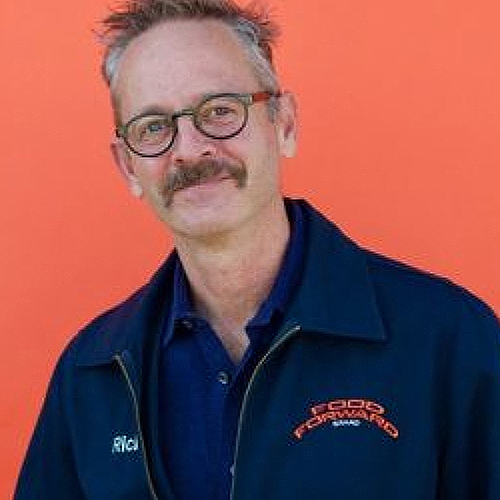
S5 Ep 1 – Food Recovery at Scale: Rick Nahmias on the Birth and Growth of Food Forward
Food justice and climate change demand an end to good waste. Food Forward in Los Angeles is the most impressive food recovery program we’ve ever seen. Founder Rick Nahmias shares the story of how he and his team have delivered over 1 billion servings of food to 150,000 people per day.
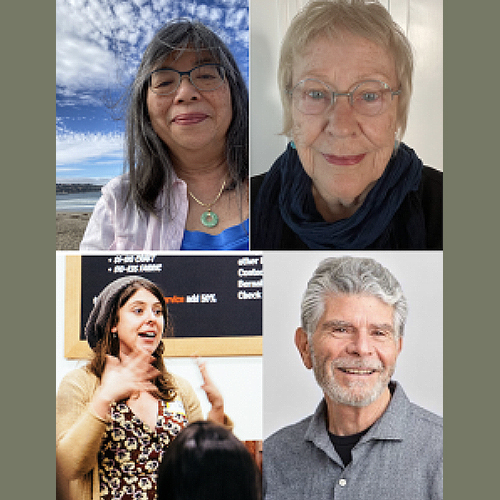
S4 Ep 12 - A Look Back at the Roots of Change story in its 20th year of existence
Hear PHI's Michael Dimock's conversation with four individuals who have been instrumental in the formation and evolution of ROC. It is a reflection on why the organization was created, what has worked, what has not and what the organization hopes might transpire with ROC and the larger movement to transform the food system into an engine for solving a host of challenges faced in this century.
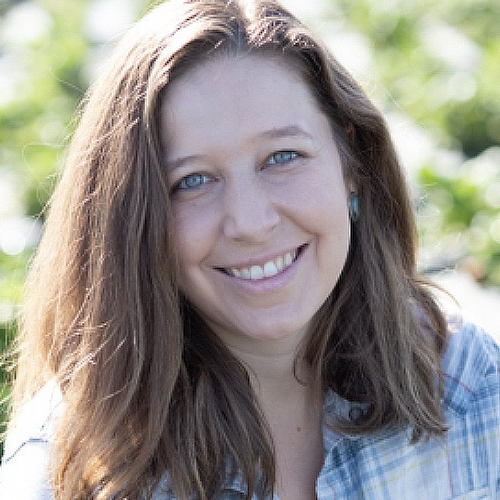
S4 Ep 11 - Update on the Achieving of Resilient Communities project and more with Maureen McGuire, CEO of Ventura County Farm Bureau
After talking about the day’s farm tour on the Oxnard plain of Ventura County to educate CalPolySLO engineering students working to keep drinking water cool for farmer workers in hot fields, Maureen and Michael explore how to solve the many complex challenges faced by farmers in a time of intense political polarization, climate change and escalating prices.
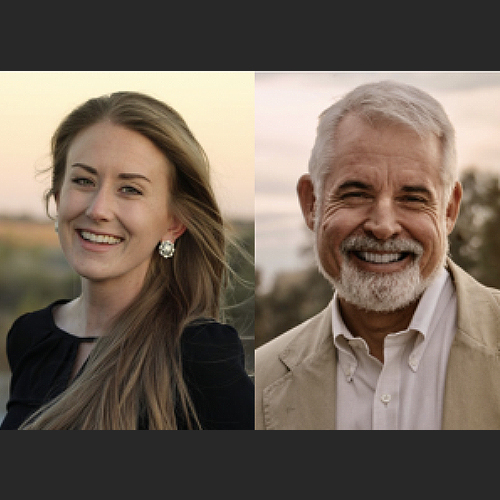
S4 Ep 10 - How Siskiyou County might save good ranches and healthy meat in the age of industrial concentration and climate change
You have probably heard how challenging it is to keep a farm or ranch alive in today’s industrial food system. Low prices, high barriers to market entry and climate impacts are killing off the family ranches that are the primary sources of meat. Big corporations are capturing the vast majority of the wealth and impoverishing rural communities. Hear about one attempt to turn the tide in one of the most rural regions of California, which is home to many good people and beautiful ranches seeking more direct relationship to urban eaters.
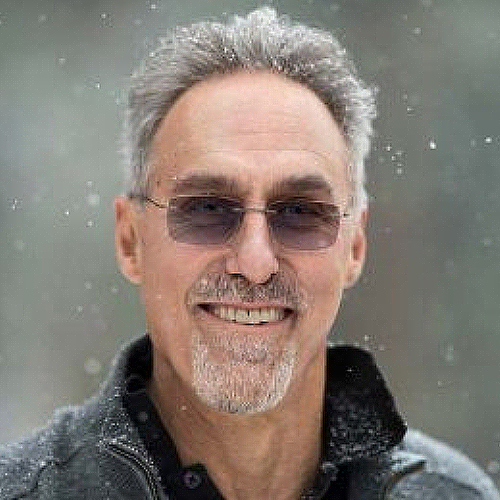
S4 Ep 9 - Woody Tasch, Slow Money and a Call to Farms
Perhaps no one has spoken so clearly about the problem of capitalism and its impact on our food system as Woody Tasch. He is the founder of the Slow Money Institute and the movement it supports. Hear about his latest written statement, A Call to Farms and the Beet Coin initiative launching on September 11, 2022.
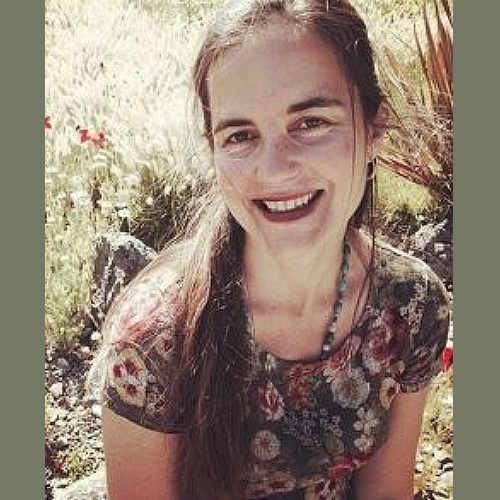
S4 Ep 8 - Carmen Snyder on the nation’s first Farm Trails map and promotor of local small family farms
Resilience requires access to local food. One model of how to sustain and promote local farms is Sonoma County Farm Trails. Launched in 1973, it is the nation’s first community-based organization with such a mission. Carmen Snyder, executive director, shares its story and about its upcoming event: the Gravenstein Apple Fair.
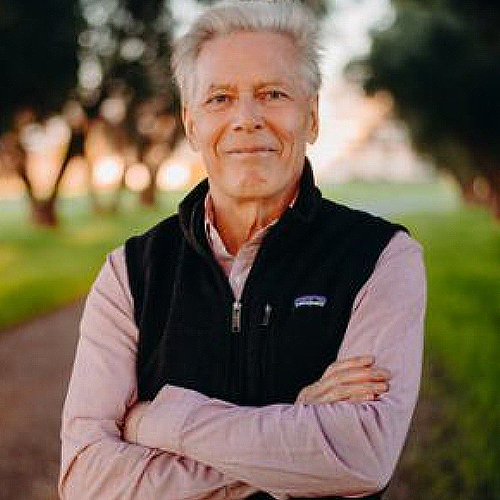
S4 Ep 7 – Regenerative farmer Craig McNamara, son of Robert S McNamara, architect of the Vietnam War
Craig shares his dramatic life journey from the JFK White House to a farm near UC Davis, the challenge of loving a complex father and how his farm brought healing inside and with the Vietnamese people.
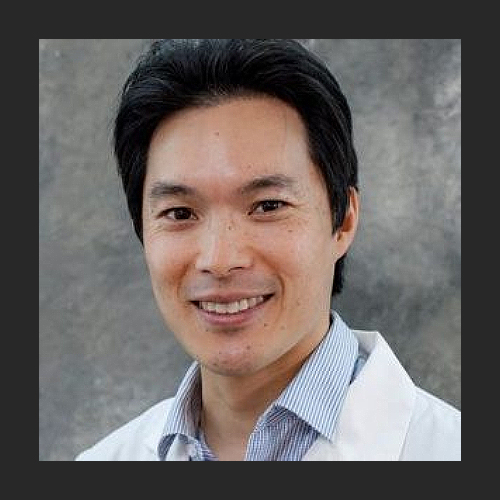
S4 Ep 6 – Dr. Steven Chen on food as medicine and the future
The healing power of food has long been recognized by indigenous cultures and through much of human history. Yet only recently has modern western medicine begun to return to food as healing agent. Diet related disease and other factors ignited this change. Dr. Steven Chen from Alameda County's health system describes how produce prescriptions and medically tailored meals are moving front and center in the effort to heal our communities and create health equity.
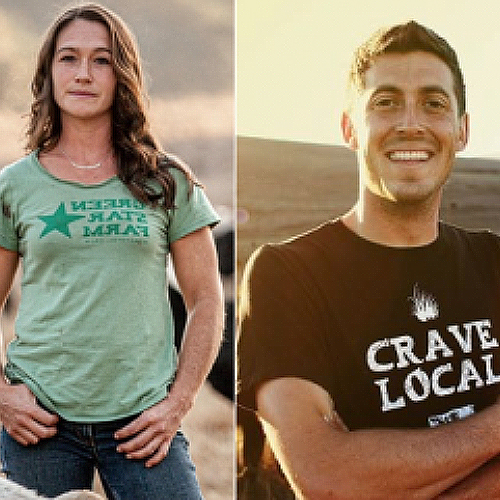
S4 Ep 5 – Two Young Regenerative Meat Producers Share Their Challenges and Solutions
Guido Frosini and Sarah Silva, members of the Bay Area Ranchers Cooperative, tell us what production and processing challenges they face and how they are solving these challenges even amidst global warming.
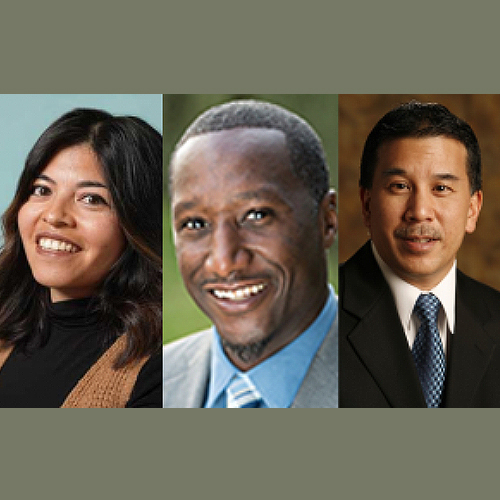
S4 Ep 4 – Three social justice leaders share their views on the struggle for Health Equity and Racial Justice Fund
Community food projects and much more would be funded if we can place the Health Equity and Social Justice Fund in the California Budget. Mar Velez, Rod Lew and Ron Coleman, three veteran policy campaigners leading the charge, describe the fund, its uses and how we plan to win the Governor’s support.

S4 Ep 3 – Let’s Feed LA County team reveals the power of community based organizations in our challenging age
Pandemic, heat waves, fires and storms demand robust public health infrastructure that includes networks of well resourced community based organizations (CBOs). The Let’s Feed LA County program that included 19 local organizations, Roots of Change, Center for Wellness and Nutrition and Wholesome Wave makes clear the need to permanently invest in CBOs on the frontline so they are ready when things get tough.
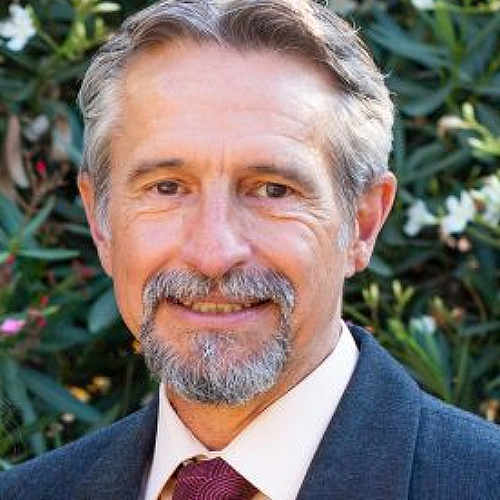
S4 Ep 2 – Protecting Farmworkers by Achieving Resilient Communities. Part II with John Krist
Michael talks with John Krist, retired CEO of Ventura County Farm Bureau, about the need and challenge of protecting farmworkers.
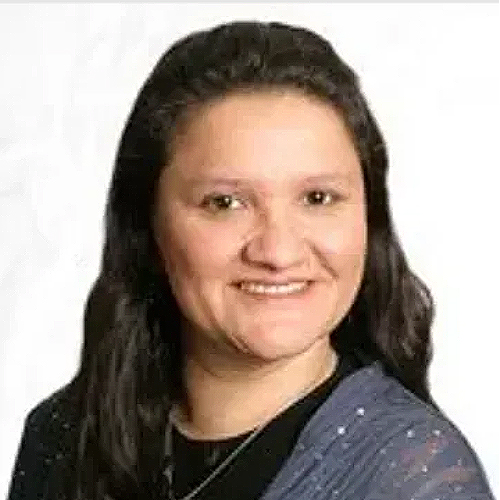
S4 Ep 1 – The ARC (Achieving Resilient Communities) project. Part I with Maricela Morales of CAUSE. January 18, 2022.
A conversation with Maricela about the Achieving Resilient Communities project and her work with Central Coast Alliance for Sustainable Economy. Maricela is a social justice warrior and the project is a core initiative of Roots of Change and its partners at the Public Health Institute.
About the Podcast
 PHI’s Roots of Change’s (ROC) collaborative network of organizations, businesses and governments hopes to make regenerative agriculture and healthy food accessible to all people including individuals, community-based organizations, food producers and businesses, advocating nonprofits, government agencies and more. ROC is committed to improving our culture’s understanding of our food system from field to table, its production systems and markets, and the policies that guide its function. Listen on Spotify, Apple Podcasts or Stitcher.
PHI’s Roots of Change’s (ROC) collaborative network of organizations, businesses and governments hopes to make regenerative agriculture and healthy food accessible to all people including individuals, community-based organizations, food producers and businesses, advocating nonprofits, government agencies and more. ROC is committed to improving our culture’s understanding of our food system from field to table, its production systems and markets, and the policies that guide its function. Listen on Spotify, Apple Podcasts or Stitcher.
Host: Michael Reid Dimock is the program director of Roots of Change at the Public Health Institute. From a leadership role in the global Slow Food Movement to leadership of winning policy campaigns, for two decades he has led catalytic work to transform thinking and laws governing our production of food and management of farms. He serves on the advisory board of the UCLA Law School’s Resnick Food Law and Policy Program as well as the nonprofit boards of Farm to Pantry and the Wild Farm Alliance. Author Katrina Fried and Photographer Paul Mobley feature Michael in their book Everyday Heroes: 50 Americans Changing The World. His global network of allies and social media followers links 140,000 individuals and organizations.
Producer: Courtney Grace is a sound designer, vocalist, and music producer based in the San Francisco Bay Area. She studied Sound Design at San Francisco State University and started her music and sound business, Courtney Grace Music and Sound in 2015. She has worked on several podcasts, films, and songs, and has worked on projects with Google and Skywalker Sound. Aside from work, she is very passionate about social justice issues, video editing, graphic design, and enjoys healthy foods and adventurous hikes in nature.
Podcast: PHI’s Dr. Arianna Campbell Discusses Opioid Use Disorder Treatment in the ER
In this podcast episode, Dr. Arianna Campbell, co-founder of PHI’s Bridge Center, shares how the Bridge Center helps the nation build addiction treatment programs.
People come to the emergency department seeking all kinds of urgent care. What if they could also get treatment for opioid addiction?
Dr. Arianna Campbell, co-founder of PHI’s Bridge Center, joins the Public Health on Call podcast episode 878, “Opioid Use Disorder Treatment in the ER,” to share how the Bridge Center helps the nation build addiction treatment programs by working in partnership with emergency departments. The episode takes a close look at how one rural hospital started prescribing buprenorphine to ER patients, and how scaling up treatment while reducing stigma at hospitals across the US is now helping thousands of patients every year.
Tune in to learn how the Bridge Center helps emergency departments provide prescription treatments for individuals dealing with substance use disorder, by prescribing buprenorphine—a medication primarily used to treat opioid use disorder (OUD) and also used to manage pain.
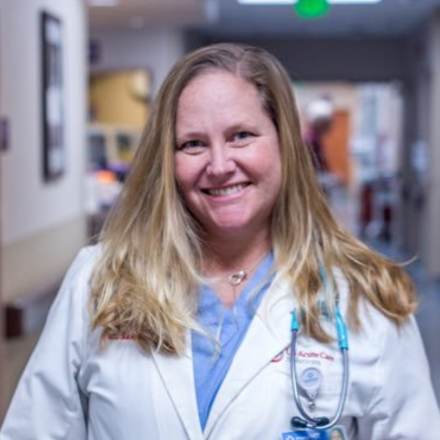
We realized that we could teach people how to do this; we could create champions who can lead these efforts and that it would work. And then we worked with urgency—realizing really the massive scale of the overdose epidemic—and that if we worked with urgency, we could create a whole system.Arianna Campbell, PA-C, MPH
Senior Director and Principal Investigator, Bridge, Public Health Institute

Many people disclose that they had never talked to a healthcare professional about their substance use. They didn't feel comfortable telling somebody because they thought they would be mistreated, and once they realized that as part of their visit in the emergency department, we could talk about this and provide a reasonable set of options, it just completely changed, not just my practice, but it changed.Arianna Campbell, PA-C, MPH
Senior Director and Principal Investigator, Bridge, Public Health Institute
Podcast: PHI Study on What Recovery Means to People Recovering from Substance Use Disorder
This episode of the Addiction Medicine Journal Club podcast highlights a 2023 study from PHI’s Alcohol Research Group that explores what “recovery” means for people recovering from substance use disorder.
In 2023, PHI’s Sarah E. Zemore, senior scientist at PHI’s Alcohol Research Group, co-authored the study Understanding the Shared Meaning of Recovery from Substance Use Disorders: New Findings from the What is Recovery. The study offers unique insights about what sustains a healthy addiction-free life.
The study is highlighted on the Addiction Medicine Journal Club podcast, hosted by Dr. Sonya Del Tredici and Dr. John Keenan, as they discuss the multifaceted definition of “recovery” from substance use disorders, emphasizing how there is no new common definition for “recovery” and why a definition is needed to know the desired treatment outcome.
The most recent definition that [the Understanding the Shared Meaning of Recovery from Substance Use Disorders: New Findings from the What is Recovery? Study] published which is from NIDA says, "Recovery is quote a process of change through which people improve their health and wellness, live self-directed lives, and strive to reach their full potential."Dr. Sonya Del Tredici, “What is Recovery?,” Addiction Medicine Journal Club
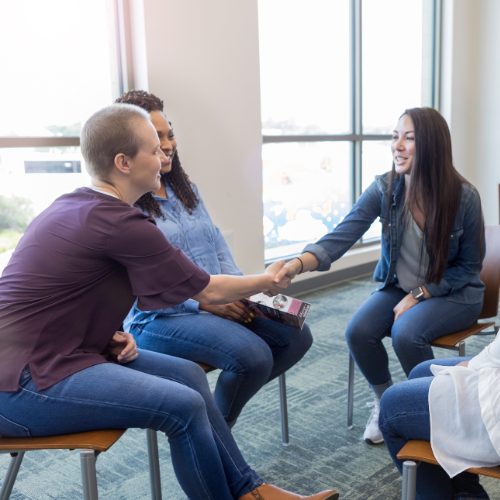
Learn more about the study: Defining Recovery — As People in Recovery See It
What sustains a healthy life, free from addiction? This study led by researchers at the Alcohol Research Group (ARG) offers unique insights from people in recovery from a substance use disorder. Multiple, shared components of recovery were identified, like "Being honest with oneself," and “taking responsibility for one’s actions," regardless of a person’s sociocultural identity, addiction history, and use of treatment services.
Podcast: Pediatric Environmental Health Radio
In this podcast, PHI’s Pediatric Environmental Health Specialty Units (PEHSU) National Program Office highlights stories from leading experts in pediatric environmental health across the country.
From the Pediatric Environmental Health Specialty Units (PEHSU) National Program Office, led by the Public Health Institute (PHI), Pediatric Environmental Health Radio highlights stories from leading experts in pediatric environmental health across the U.S. Each episode highlights a topic in children’s environmental health and brings together two experts from the PEHSU network.
The PEHSU National Program Office supports a network of ten regional PEHSUs across the nation, whose vision is to create healthy environments for all children. Get to know the PEHSU experts and see how their work is improving health in communities across the country:
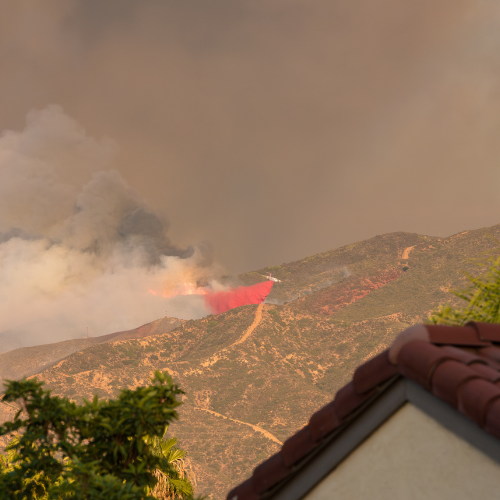
Ep 3: Protecting Children from the Health Effects of Wildfires with Gina Solomon, MD, MPH
Host Whitney Sterten-Hall speaks to Gina Solomon, MD, MPH, principal investigator for the Western States Pediatric Environmental Health Specialty Unit and the Chief of the Division of Occupational, Environmental and Climate Medicine at UCSF, about ways to protect children from the health effects of wildfires.

Ep 2: Childhood Cancer, the Environment and the Role of Community Health Workers with Mark Miller, MD, MPH, and Erica Guerrero MS, MPAS, PA-C
Host Whitney Sterten-Hall speaks to Mark Miller MD, MPH, an Associate Clinical Professor in the Division of Occupational and Environmental Medicine at the University of California San Francisco (UCSF) and the Director Emeritus of the Western States Pediatric Environmental Health Specialty Unit (WSPEHSU), and Erica Guerrero, MS, MPAS, PA-C, a PA (Physician Assistant) in the Department of Emergency Medicine at Texas Tech Health Sciences Center El Paso about environmental factors that contribute to childhood cancer, and how community health workers can educate local populations about cancer and environmental risks.
Speakers:
Mark Miller MD, MPH is an Associate Clinical Professor in the Division of Occupational and Environmental Medicine at the University of California San Francisco (UCSF). He is also the Director Emeritus of the Western States Pediatric Environmental Health Specialty Unit (WSPEHSU) at UCSF lead for the National PEHSU Childhood Cancer and the Environment Program. He was the director of the Community Outreach and Translation Core of the Center for Integrative Research on Childhood Leukemia and the Environment at UC Berkeley (CIRCLE). He received his medical degree and completed a Pediatric residency at Michigan State University. He received his Masters in Public Health in Environmental Health Sciences from UC Berkeley and completed a residency with the California Department of Health Services in Preventive Medicine.
Erica Guerrero, MS, MPAS, PA-C, is a PA (Physician Assistant) in the Department of Emergency Medicine at Texas Tech Health Sciences Center El Paso. Erica began working with the Southwest Center for Pediatric Environmental Health (SWCPEH) in 2018 as a principal collaborator. The opportunity to work with SWCPEH has sparked a deeper interest in issues related to pediatric environmental health. Additionally, she is passionate about environmental health and health issues along the U.S.-Mexico border.

Ep 1: Lead Exposure in Children with Marissa Hauptman MD, MPH, FAAP & Nick Newman, DO, MS, FAAP
Host Whitney Sterten-Hall speaks to Marissa Hauptman, MD, MPH, FAA, co-director of Region 1 New England Pediatric Environmental Health Specialty Unit (PEHSU), and Nick Newman, DO, MS, FAAP the satellite director for the PEHSU Network, based out of Region 5, about lead exposure in children. Speakers discuss their work with lead testing and indicators for children, how COVID impacted their work with testing children for lead exposure, and how clinicians can help families minimize lead risks in their home. “Lead exposure is a major cause of preventable learning disabilities and doing a blood test is the best way to find out if a child was seriously exposed,” said Nick Newman, DO, MS, FAAP.
Speakers:
Marissa Hauptman, MD, MPH, FAAP is the Co-Director of Region 1 New England Pediatric Environmental Health Specialty Unit (PEHSU); Co-Director of the Pediatric Environmental Health Center; a Pediatrician for Children's Hospital Primary Care Center (CHPCC) and an Assistant Professor of Pediatrics at Harvard Medical School.
Nick Newman, DO, MS, FAAP is the Medical Director of the Pediatric Environmental Health and Lead Clinic at Cincinnati Children’s Hospital and an Associate Professor of Pediatrics and Environmental & Public Health Sciences at the University of Cincinnati. He is the Satellite Director for the PEHSU Network, based out of Region 5.
Podcast: PHI’s Michael Dimock Discusses Food and Farm Policy Advocacy
PHI’s Michael Dimock, executive director of our Roots of Change program, joins The Leading Voices in Food podcast for a conversation about transforming food systems through innovative policies.
PHI’s Michael Dimock, executive director of our Roots of Change program, joins The Leading Voices in Food podcast for a conversation about transforming food systems through innovative policies. Listen to the podcast to learn about how Roots of Change collaborates with various stakeholders to create nutrition incentive programs and support sustainable agriculture, focusing on community-first approaches.
Topics discussed include pioneering projects, insights into policy influence, and the future of agricultural practices.
Watch:
Interview Summary
Why don’t we begin by you explaining what Roots of Change does. What’s the mission and role of the organization?
Yes. We were originally founded by a group of philanthropic foundations that were very interested in food system change but had not seen much success in years. So we were really designed to be a catalyst to ignite the growth of what we would call the Good Food Movement. For 10 years, we were actually a philanthropic fund investing in different projects that built the power of the food movement. And then implemented projects that would catalyze change. That would show how you could scale change fairly rapidly by building collaboration. So that’s really what we’ve been doing. And in 2013, the philanthropic fund ended, we’d spent down all the money. So we joined the Public Health Institute at that time because public health is such an incredibly important engine for food system change because the food system impacts public health so greatly. We’ve been since that time focused on policy change and implementing model demonstration projects.
Thanks for that explanation. You talked about catalyzing change for transforming the food system. What sort of changes have you emphasized?
We’ve been focused on a few key things. I would say that one of the most important for us has been healthy food access. And doing that through the creation of nutrition incentive programs. And the reason we’re interested in that is, all the changes that we pursue are aimed to hit several different levers of change simultaneously. By building nutrition incentive programs, you help the small and midsize farmers who are supplying local grocery stores, the farmers markets, and at the same time, you’re creating the funding for low-income families to actually purchase organic, regenerative, sustainable agriculture. From their local market. You get a lot of payoff for that kind of action.
You mentioned incentives. How do incentives fit into this?
There is a program, a federal program called the GUSNIP. Named after Gus Schumacher, who was Undersecretary at USDA during the Clinton years, and actually worked with us early on. And so that program is a pool of funding through the Farm Bill that is given as grants to either states or nonprofits that are creating these programs where a family comes in with their SNAP benefits, and their purchasing power is doubled. They’re given matching dollars to buy fruits and vegetables from a farmer’s market, a local store, grocery store. So it’s an incentive to purchase fresh nutritious food. And so, we have worked on the original federal policy. We’re one of the first demonstration projects to show how you do nutrition incentives working with folks in the upper Midwest and in the East. And then we created an analog. California also has a matching fund which helps us pull more money from the federal level. So, we can really get a big impact at the local level. And we built that California program as well. We’ve been really deep in nutrition incentives.
But we also work on farmer farmworker protections from heat. It’s a big problem out here in the West. Increasing temperatures. We’re working with different scientists, epidemiologists, and farmers to figure out best management practices or technologies that keep farmers cool. And then we also work on programs to provide incentives for ranchers to produce regenerative meat, that is grass-finished meat.
So, those are the three areas working in right now. But we’re also just starting a project. I have a meeting today with the California Department of Food and Agriculture to develop a plan for mid and small-scale infrastructure for regional food systems in the state of California to be achieved by 2040.
One thing I really like about your approach is the lining up of incentives to produce food in a way that’s better for both human health and the environment. Because so many incentives are lined up the other way. Obviously, the food industry wants to make as much money as they can, and that comes from highly processed foods that aren’t very good for health. And then the same sort of incentives lines up for agriculture to do industrial forms of agriculture where you maximize the yield per acre. To turn that around is really going to be a major effort. One thing I like about your approach is that you’re trying different things that can become models for what could be used in a very broad scale in terms of public policy. I really admire that and like what you’re doing. Do you have an overall strategy for helping bring about change?
One of the things that we did in 2010-11 is we did a deep analysis of the food system and did a systems dynamic map of the entire food system. Working with leaders, Secretary of Agriculture for California, farmers – big size, small size, organic, conventional, with food justice folks. And we looked at where are the real intervention points. One of the things that we really realize is that, as you were pointing out, the current incentives are for industrialization, basically. And so, the question is, how do you actually change that? And policy is one important lever for doing that. So, we work a lot on trying to change the policy levers to create incentives for what we would call healthy and resilient agriculture.
Tell me more about how you go about doing that. I’d love to hear when you’re done with that, how you go about doing that with policymakers.
Well, I’ll jump right in on that. Let’s look at what we did with nutrition incentives. So, working with Fair Food Network out of the upper Midwest, and Wholesome Wave out East, Roots of Change did a study. We created our own nutrition incentive programs using philanthropic dollars and some USDA kind of innovative dollars, and then we studied it for two years, what the impacts were. We wrote a report then, which went to Congress, to Debbie Stabenow in Minnesota, who was the Senator there who was on the ag committee. And she began writing a bill that would say, okay, let’s provide incentives for people to buy healthy food that also helped the small farmers. So that switched the incentive from the big agricultural systems to the regional food system players. That was one way we did it.
The other thing that we did in California was we organized all the farmers markets to go to the State of California and say, look, if you provide this nutrition incentive program in California and analog, we’ll pull down more dollars from the federal government. The California legislature said that’s a great idea. They got on board. Which then helped the farmers markets to provide more funding because farmers markets are often stressed. Too many markets, so there’s problems. Competition between markets. So, to provide a new market, which is low-income families who are using nutrition incentives and their SNAP dollars, that was really important for the farmer’s market. Those farmer’s markets became another big piece of our strategy. Our way of making change was just to build collaborations, large collaborations of people.
We work with many other nonprofits and farming groups in California to approach the legislature and over the last three years we’ve gotten $1.3 billion dollars in investments from the state of California into sustainable agriculture and food justice. Because we’re able to build these large collaborations who convince the legislators who really care about votes that there’s enough people out there want to see this happen. And we have just placed a billion-dollar request on the next bond, which will be in the next election, November. This November there’s the climate bond. It’s called a climate bond for the State of California. Ten billion dollars, one billion of that will be dedicated to nutrition, nutritional health, farm workers, and sustainable agriculture.
So, in all ways, it’s about getting enough voices. So, if you look at what we’re really trying to do, we’re trying to build the power of what we would call the Good Food Movement.
Best of luck with that billion-dollar request. I really hope that goes through. You know, in the beginning of your response to my last question, you talked about a report that you did in concert with other organizations around the country and how that became influential in the policy process. Very often, some of the people in my orbit, scientists, wonder how they can help with this kind of thing and how they can do work that makes a difference. And I’ve often thought that speaking with people in the policy and advocacy world, like you, turns up some really interesting questions they could help address, if they knew what those questions were. But they often aren’t having those conversations because they’re mainly speaking to other scientists. That’s one of the reasons why I so much like having people who approach things like you do on this podcast series. Scientists aren’t our only listeners, but they’re among them, and it’s nice to give them ideas about how they can connect their work with what’s going on out there on the ground in terms of policymaking. So, you emphasize putting people in communities first. What does that mean? And how does that play out in the work you do?
It’s a great segue from what you were just saying about the need to combine community voices with nonprofits and scientists, academics, and people who are good at research and who are good at analysis. Back to this idea of nutrition incentives that really grew out of what community groups were doing. The IRC (the International Rescue Committee) works with immigrants from Africa, primarily at that time who were coming into San Diego. And they were farmers, mostly. They were escaping violence, war, in their countries. And they came to San Diego and the IRC worked with them to create a farmer’s market, and a farm – a community farm. And those folks were the ones that were saying, this program works. And this is a really good way to solve many problems at once. So, we were hearing from community members and the nonprofit that had created this model. So, it was a way of us understanding what was actually working on the ground. So that’s one example.
I can also say that in 2017, 2019 and 2020, we had terrible fires here in California. We also had all that followed with COVID in 2020. We were working with the University of California at Davis. Tom Tomich, who at that time was with the Ag Sustainability Institute at UC Davis. And we were doing research on how do you deal with climate change as small farmers? And what we realized is there was this moment in time when all of these things that have been piling up were impacting the ability to get meat. You’ll remember that meat disappeared from shelves for a while because all the big plants that process meat in the Midwest were shut down due to COVID. So, what we did is then went out and we interviewed ranchers up and down the State of California, and we asked them, what do you need? And are you interested in finishing animals for grass-fed markets? Are you interested in building local markets? We got a lot of feedback that led to a white paper that Roots of Change published with the University of California at Davis and put out to the world. Which led to us getting a grant to actually take some of the suggestions and the recommendations we had gotten from the producers about what to do. What’s that led to now? We have built a relationship with the University of California: ten campuses, five medical systems. They have committed to buy regenerative regional meat from the State of California. That grew out of a white paper, which was fed information by the ranchers on the ground, analyzed by academics and nonprofits, and delivered in a system that’s now gotten the university to make a commitment. So, it’s another example of just how you can mix all these great parties to get some sustainable change at a large scale?
Now that leads me pretty nicely to what my next question. And it has to do with what’s needed going forward and how do these things occur in more places in a bigger way than the places they are now. Now you mentioned, for example, the regenerative agriculture pledge that got made by the University of California system. That’s a big enterprise. There are a lot of people that get touched by that system. So, that’s a pretty impressive example of taking an idea that might’ve been smaller to begin with and then became bigger. Going forward, what kind of things are going to be needed to make that kind of thing happen more often?
That’s a really good question. Kelly, I think that one of it is communication. I mean, perhaps some somebody will hear this and reach out to us and say, how’d you do that? And then we’ll say, well…and they’ll tell us what they did and we’ll learn from them. One of the things I’m really interested in, always been interested in, and one of the things that Roots of Change is focused on is trying to convene people to share information. Because you build partnerships when you share information. And those partnerships can become the engines for getting the policy makers or the corporations to change their modalities. How they’re doing things. Because they realize, hey, the writing is on the wall. This has to happen. We need to figure out how to get there. And sometimes it’s complex to get there because the food system is very complex.
So, I would say that one of the things I’m really looking forward to is more cross collaboration. You know, we’re living in the season of elections. We’re hearing it on the news all the time. And the thing that drives the policy makers is whether or not they’re going to be elected or reelected. And so, the more that we can convince them that there is a large majority of the public that wants to see these fundamental changes in the food system. We will have their support. We’ve seen it in California. We are getting incredible support from our Secretary of Agriculture, our governor, and our Secretary of Natural Resources. They work together to create things on the ground. I would say that the Tom Vilsack and Biden did a lot for regenerative agriculture, working on two big projects that have been funded by the USDA that will touch a thousand ranchers of bison and beef to get them to learn about, adapt, adopt, and then build new markets for their products. So that’s an important piece. The other is the marketplace and companies want to sell their products. So, the more that consumers become discerning and what they’re purchasing, the better off we’re going to be. So, we have a podcast like you do. And what we’re trying to do is just educate people about the connections between what they’re doing and what the farmers and ranchers out there who are trying to do good work with the land and with health and with their workers. We just try to promote this idea of making good decisions about what they purchase.
Tell us a little bit more about your podcast, which is called Flipping the Table. Tell us more about what you’re trying to accomplish and the kind of people that you speak with.
Well, it’s similar to yours in a certain way, I would say. Because what I’m doing is interviewing the people that are doing the kinds of projects that we think are scaling change or could scale change. Or people who have a depth of understanding. So, the regenerative meat world, we’ve done a lot in the last few years. Talking to Nicolette Hahn Nyman, who wrote a couple of books about the meat system, with a great rancher up in Northern California, who advises other ranchers on how to finish their animals on grass in California in a dry environment. I just, today we dropped a podcast with Cole Mannix from the Old Salt Co op in Montana about the ranchers he’s pulled together. The co op he’s built that has a slaughter plant, restaurants, a meat shop, and has an online thing. And then they do a big, they do a big annual event in the summer during the solstice. So, you know, we’re just trying to get voices who, like you are, who are, who are modeling and educating the public around what is happening. How much is actually happening. I’ve been in this world for 30 years almost, and I have to say, I have never been more optimistic about the scale of change, the accelerating speed of change, and the possibilities that lay ahead.
Podcast: People. Power. Perspectives.
The podcast where CA4Health talks to people working to overcome systemic inequities to achieve just outcomes
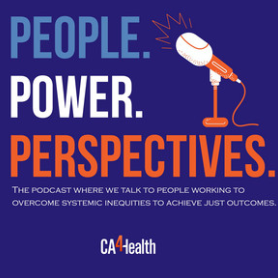 People.Power.Perspectives. is a podcast series created by PHI’s CA4Health featuring in-depth discussions with leaders who are advancing health, justice and racial equity—helping to build agency, inclusiveness and power to drive change and create more just and equitable outcomes. Find out more about the podcast and explore additional materials, resources and more.
People.Power.Perspectives. is a podcast series created by PHI’s CA4Health featuring in-depth discussions with leaders who are advancing health, justice and racial equity—helping to build agency, inclusiveness and power to drive change and create more just and equitable outcomes. Find out more about the podcast and explore additional materials, resources and more.
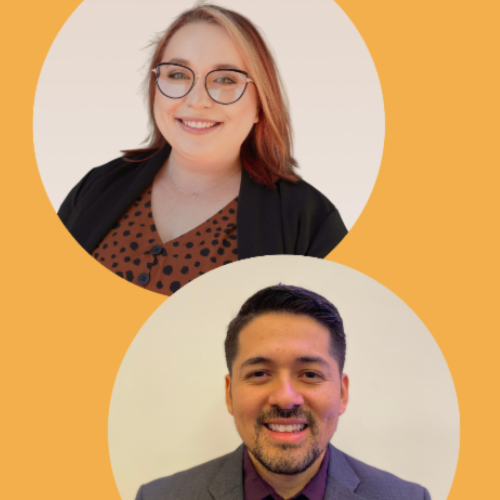
Promoting Equity & Health Inclusive Policies with Kary Carbone and Isai Garnica-Palma
In this episode, CA4Health speaks with Kary Carbone and Isai Garnica-Palma from the Together Toward Equity Fellowship on how Promoting Equity & Health Inclusive Policies within diverse communities benefits everyone. Kary Carbone is a program manager at United Way of Northern California in Redding, CA. Isai Garnica-Palma is a program manager at Valley Onward in Merced, CA. "I think that really uplifting the community side is conducive to lifting up the equity pieces of the work that is currently being done and amplifying that so that there can be more work," says Kary Carbone.
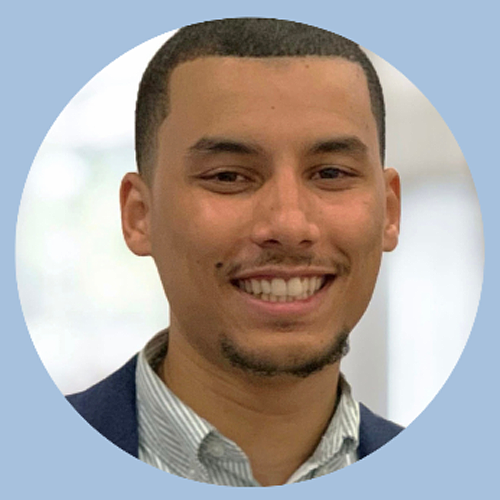
Episode 9: Racism is a Public Health Crisis with Oussama Mokeddem
In this episode, CA4Health speaks with with Oussama Mokeddem on how Racism is a Public Health Crisis and how to work with diverse communities equitably. Oussama Mokeddem is the Director of State Policy at Public Health Advocacy in Sacramento, CA. "I think the basis of advocacy is curiosity. It's the question of why, why does this have to be this way?" says Oussama Mokeddem.
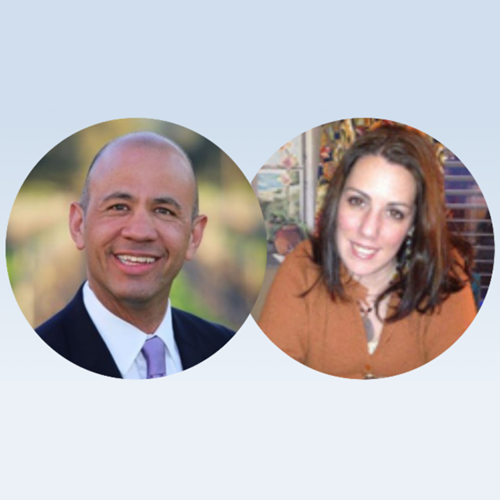
Episode 8: Domestic Violence, Guns, and United States v. Rahimi with Michael Rodriguez and Jennifer White
In this episode, CA4Health speaks with Michael Rodriguez and Jennifer White on the possible outcomes of domestic violence and guns from the current United States v. Rahimi case. Michael Rodriguez, MD, MPH, is the Director of the California Alliance of Academics for Public Health Equity in Oakland, CA. Jennifer L. White, JD, is the Program Director for Curriculum Development & Program Design at Futures Without Violence in San Francisco, CA. “Thinking about the root causes... we need to continue to think about not just violence and how it occurs between two people or multiple people. But what the root causes are that allow this type of violence to occur and persist," says Jennifer White, program director for curriculum development & program design at Futures Without Violence.
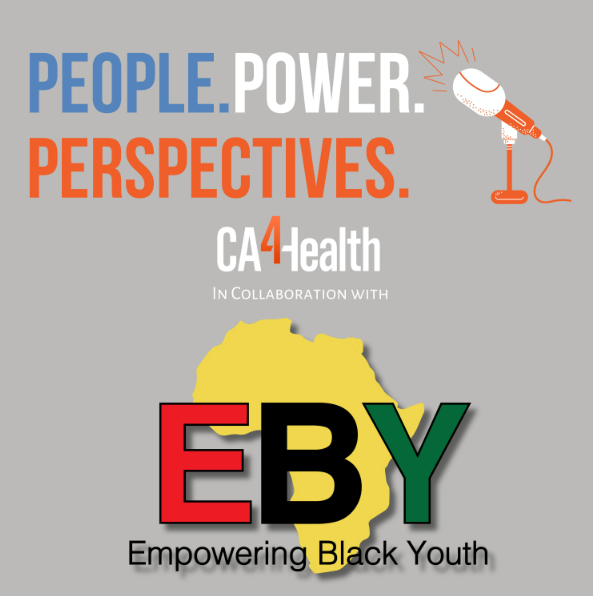
Special Youth Series Episode 5 - Mental Health with Empowering Black Youth Participants
In this special episode from their youth series, Justin Boyle moderates a panel with Empowering Black Youth Participants (Isis, Deja and Shamarrie) about mental health in the Black community and from the perspective of Black youth. Justin Boyle is a student as University of San Francisco and also a part of the Empowering Black Youth (EBY) Program at Code Tenderloin in San Francisco, California. “Just being around my teammates and my friends being able to talk about my feelings and being in a safe environment around other people who look like me, like most of my friends are Black. Being able to express my feelings around them helps me,” says Deja, Empowering Black Youth Participant.
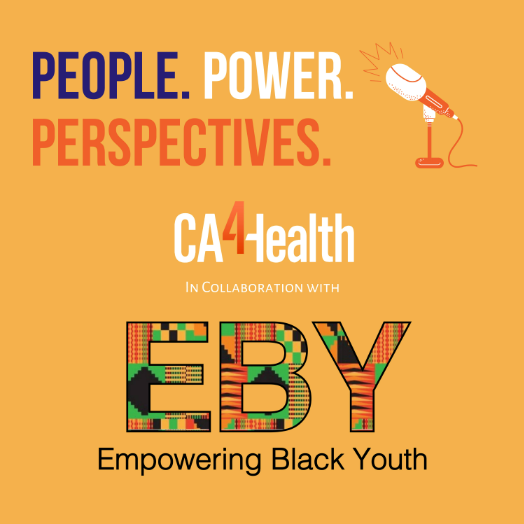
Special Youth Series Episode 4: Sexual and Reproductive Health With the Empowering Black Youth Program
In this special episode from their youth series, Justin Boyle moderates a panel with Empowering Black Youth Participants (Isis Breston and Quincy Casey) about their Sexual and Reproductive Health education before and during the Empowering Black Youth Program. Justin Boyle is a student as University of San Francisco and also a part of the Empowering Black Youth (EBY) Program at Code Tenderloin in San Francisco, California. “There needs to be an area of destigmatization of the conversation around STDs and STIs in the Black community as a whole, and just how we speak to each other about these things, in order to create a sense of comfortability amongst each other to be able to move forward. Without that, we arent going to be able to progress,” said Quincy Casey, Empowering Black Youth participant.
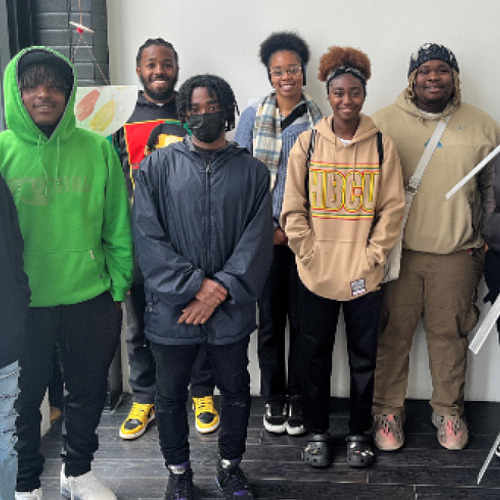
Special Youth Series Episode 3: Impacts of the Empowering Black Youth Program
In this special episode from their youth series, Justin Boyle moderates a panel with Empowering Black Youth interns (Elijah, Mar, and Sicily) about their experiences in the Empowering Black Youth Program. Justin Boyle is a student at the University of San Francisco and also a part of the Empowering Black Youth (EBY) Program at Code Tenderloin in San Francisco, California. “As the youth, we have started to get in touch with our mental health…we can sit there and change the way we react to racist comments. We can change the way we perceive ourselves,” said Sicily Griffins, an Empowering Black Youth participant.

Special Youth Series Episode 2: USF Intern Experience with the Empowering Black Youth Program
In this special episode from their youth series, Antwan Matthews moderates a panel with University of San Francisco interns (Will, Kamryn, Onyé, Chidera, and Justin) about their experiences in the Empowering Black Youth Program. Antwan Matthews is the Director of the Empowering Black Youth (EBY) Program (and all youth programs) at Code Tenderloin in San Francisco, California. “By engaging in community-engaged learning, it reaffirms the fact that there is not just one of us," said an Empowering Black Youth participant.
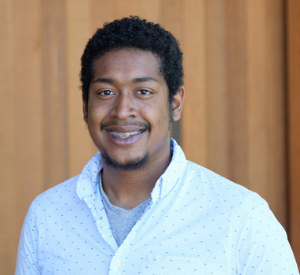
Special Youth Series Episode 1: Introducing the Empowering Black Youth Program
In this special episode from their youth series, CA4Health speaks with Antwan Matthews, Director of the Empowering Black Youth Program (and all youth programs) of Code Tenderloin in San Francisco, California. "I think oftentimes in public health institutions, everyone's right, there is no room for error, everyone feels that they have the answer. And oftentimes, those answers are not facilitated by the community." says Antwan Matthews.
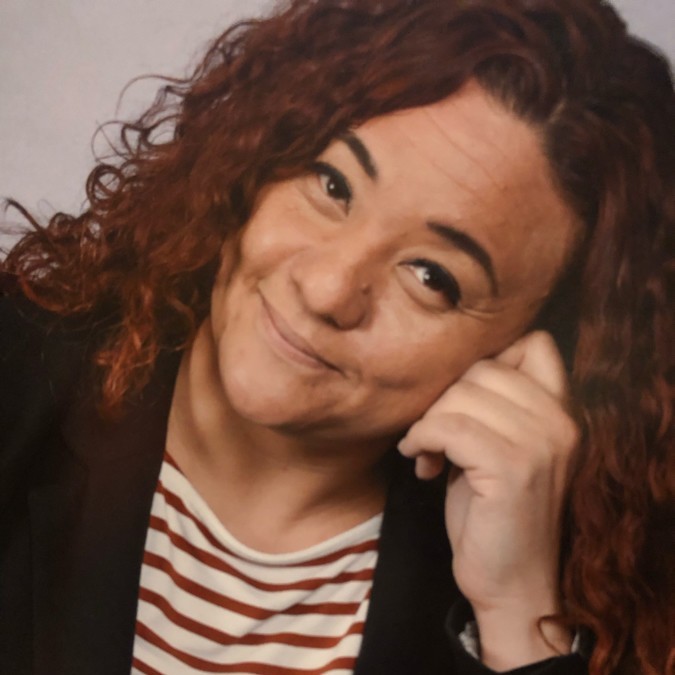
Episode 7: Building a Workforce for Community Health Workers
In this episode, CA4Health speaks with Donna Hilliard on Building a Workforce for Community Health Workers. Donna Hilliard is the Executive Director at Code Tenderloin in San Francisco, California. “A lot of the problems and issues we tried to tackle if we brought more people with the lived experience, who are actually living through that we'd have new ideas to the table," says Donna Hilliard.
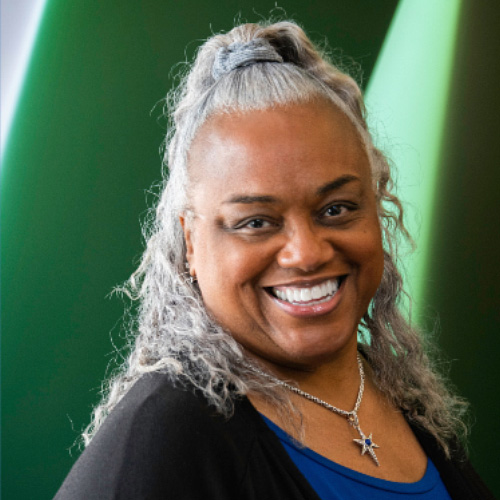
Episode 6: Community, COVID, and Power Sharing with Lisa Tealer
In this episode, CA4Health speaks with Lisa Tealer on Community, COVID, and Power Sharing. Lisa Tealer is the Executive Director at Bay Area Community Health Advisory Council in Redwood City, California. “The reason why I think it's so important is because those individuals who are making policy decisions, and also budgetary decisions, really need to understand the impact that they have on the communities that are disproportionately impacted by their decisions," says Lisa Tealer.
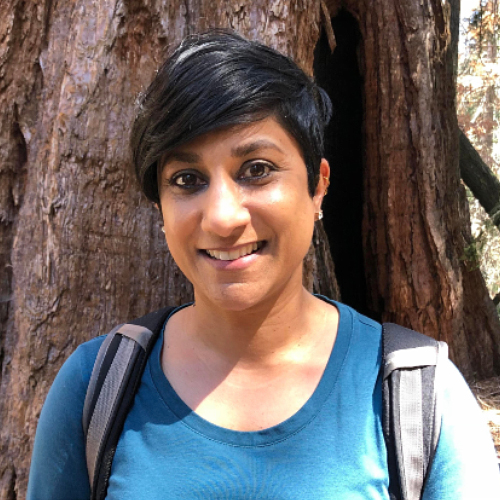
Episode 5: Equity and Land Conservation with Shelana deSilva
In this episode, CA4Health speaks with Shelana deSilva on Equity and Conservation. Shelana deSilva is the Policy and Advocacy Strategist at SdS Consulting in Oakland, California. "But when it comes to the work of conservation and land protection, there's a way that that settler colonial framework has been very much in the back seat. And we're only today really looking at that, and understanding the role that this framework of protecting land actually had as an impact on indigenous communities and other communities of color," says Shelana deSilva.
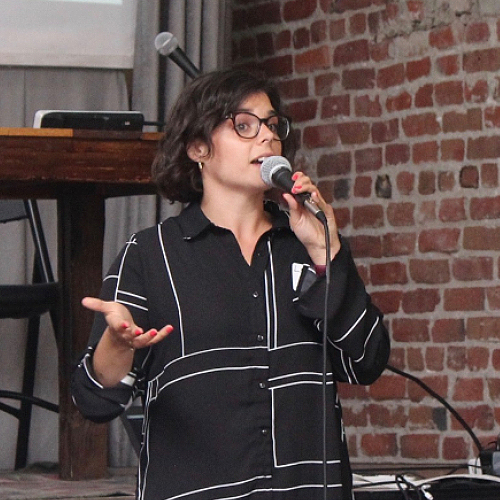
Episode 4: The Importance of Promoting Prevention Forward Investments with Lauren Pennachio
In this episode, CA4Health speaks with Lauren Pennachio on the Importance of Promoting Prevention Forward Investments. Lauren Pennachio is the Director of Revenue Strategy and Partnership at Health Leads in Boston, Massachusetts. “[To] the folks that are wanting to advance equity and justice in their communities, acknowledge your positional privilege and power within the ecosystem and do an honest investment about what are you capable of doing around your goals to advance equity and justice,” says Lauren Pennachio.

Episode 3: Building a Culture of Solidarity in Public Health with Mojgan Sami
In this episode, CA4Health discusses how to build a culture of solidarity in public health, with guest speaker Dr. Mojgan "Mo" Sami, PhD, MA, an Assistant Professor of Health Equity and Public Health Researcher at CSU Fullerton in Fullerton, California. “Public health, health, wellbeing is not just about individual bodies, although interestingly, we all embody it, disease impacts us individually, but healing happens collectively," says Dr. Sami.
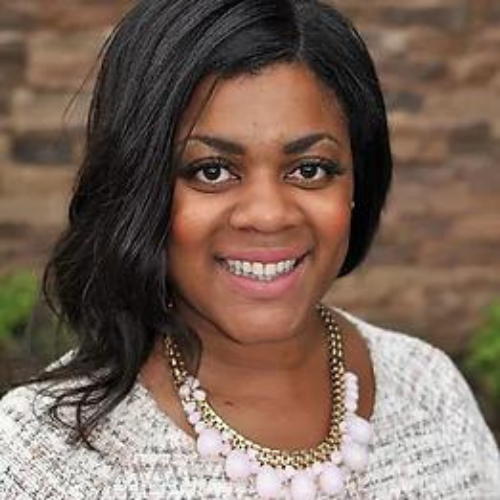
Episode 2: Reproductive Health, Rights & Justice with Shantay R. Davies-Balch
Shantay is President and CEO of BLACK Wellness & Prosperity Center, the first CBO in the County of Fresno established to address the Black Maternal Child Health Crisis. She also serves as the Director for the COVID-19 Equity Project, African American Coalition, housed at one of the nation’s largest Community Action Agencies, Fresno Economic Opportunities Commission.
Her career has been dedicated to improving health outcomes for all women and babies and is a certified lactation educator, doula, and certified newborn care specialist, with an expertise in premature birth, infant and maternal mortality, and breastfeeding. Shantay is a Community researcher and a member of the Black Maternal Infant Health Statewide Advisory Board, to develop the first comprehensive statewide report on the status of Black women and babies in California in 30 years. In 2019, Shantay was recognized for her leadership in Black Maternal Health by then-U.S. Senator, Kamala Harris.
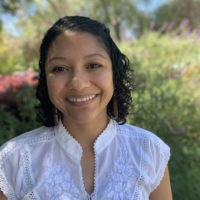
Episode 1: Participatory Budgeting with Kristania De Leon
In this episode, Kristania De Leon speaks on participatory budgeting, a democratic process in which community members decide how to spend part of a public budget. Kristania currently works as the Co-Executive Director of the Participatory Budgeting Project to increase the adoption, visibility, and impact of Participatory Budgeting across North America. "Participatory budgeting at its core is really about community led decision making," says Kristiana. "It's allowing community members to make real decisions that results in real financial investments in their communities directly. And so, we've seen this emerge as a tool that people will use across various movement building spaces."
About the Podcast
CA4Health understands that social movements should be inclusive, authentic and brave, and that no single person or entity can do it alone. People.Power.Perspectives. lifts up the work and insights from partners who are working on upstream issues impacting communities, and explores how different inequities intersect, the connections to health and the value of expanding community- and equity-centered approaches across multiple sectors.
Learn more about People.Power.Perspectives and CA4Health.
Listen on Spotify:
Listen on Anchor:
Podcast: Saving Lives Through Increased Access to Addiction Treatment with PHI’s CA Bridge
On this podcast episode of Everyday Injustice, LaToya Mitchell, navigator project manager at PHI’s CA Bridge, talks about how the innovative program helps to get people from the ER into drug treatment—ultimately reducing annual drug overdoses and saving lives.
On this podcast episode of Everyday Injustice, LaToya Mitchell, navigator project manager at PHI’s CA Bridge, talks about how the innovative program helps to get people from the ER into drug treatment—reducing annual drug overdoses and saving lives.
In the podcast, LaToya also discusses her role in supporting lower patient treatment barriers, the importance of harm reduction and the use of treatment over incarceration.
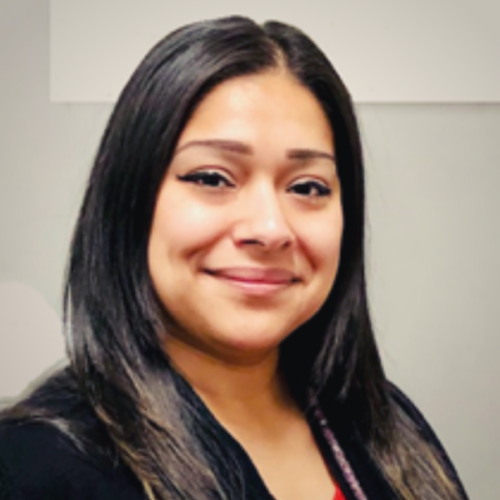
We found that with the presence of the Navigator, patients felt more comfortable coming in and saying, I’m here because I’m having opioid withdrawals, as opposed to them naming their symptoms and because they were afraid of admitting their substance use. Because of that, we’re able to get them treated and in and out in a couple of hours. Instead of spending six hours in the emergency room getting unnecessary and costly tests, we found that it actually saved resources and a lot of money.LaToya Mitchell
Navigator Project Manager, CA Bridge Program, Public Health Institute
Podcast: “Not Designed for Health” with PHI’s Steve Downs
PHI’s Steve Downs, co-founder of Building H, joins The Other 80 podcast to discuss how Building H is helping companies and designers re-engineer products and “product environments” so they improve rather than harm health.
PHI’s Building H aims to reverse chronic disease in the U.S. by building health into everyday life. Building H believes the infrastructure of our daily life—food, transportation and housing, and entertainment—can be reimagined with health and well-being as explicit design goals.
In the episode “Not Designed for Health,” PHI’s Steve Downs joins The Other 80 podcast to discuss how Building H is helping companies and designers re-engineer products and “product environments” so they improve rather than harm health.
Listen hereSpeakers discuss:
- Shocking trends in American health: 48% of Americans are lonely, 35% don’t get six hours a night of sleep and 60% of adult calories come from ultra-processed food.
- The mistake of thinking of our daily choices as “individual” decisions, when these decisions are profoundly shaped by our environments and the products we use.
- The Building H Index, which evaluates everyday products against five metrics of health: eating, physical activity, sleep, social connection, and spending time outdoors.
- Culdesac – A real-estate developer that is building “cities for people without cars”.
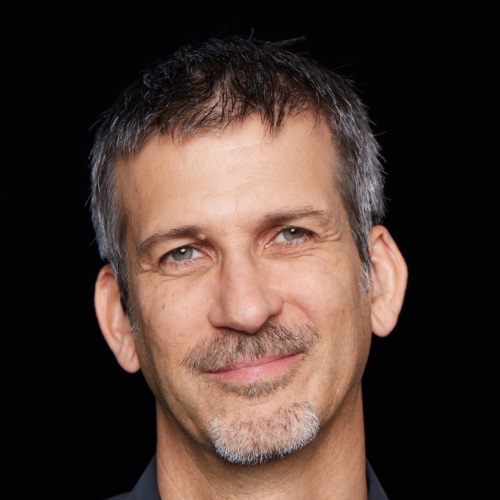
McDonald's is not responsible for all the food related chronic illnesses in America. But you might argue that they are, I don't know, 1.7%, responsible or 3.8% responsible … I think we ultimately need to get to a place where if your product is leading to unhealthy behaviors, which is leading to illness and disease and cost, there may need to be some accountability for that.Steve Downs
co-founder of Building H
Programs in San Francisco Offer Overdose Response Training for Youth and Community Members to Help Save Lives
Deputy Director, Brooke Briggance, and youth leader, Jennifer Mendoza, with PHI’s FACES for the Future Public Health Youth Corps, discuss how training other youth and community members in overdose response training can help to reverse overdoses and save lives.
A longer version of this article by Sylvie Sturm — “SF Students, SRO Residents Train to Reverse Drug Overdoses” — was originally published by the San Francisco Public Press and adapted from its “Civic” podcast. Listen to the audio player at the bottom of this page to hear the full story.
“Experts in overdose prevention say many teen and adult lives could be saved if more people know how to identify and respond to overdoses. In San Francisco, an array of programs are providing overdose response training to teenagers, college and graduate school students, and residents in neighborhoods that have a high rate of overdose deaths.
Fentanyl-related teen overdose deaths nearly tripled nationally from 2019 to 2021, according to the Centers for Disease Control and Prevention. And two-thirds of those who died had someone nearby who did not provide an overdose response.
Now, some San Francisco high school students are trying to help by volunteering for a program that trains them to recognize drug abuse and reverse overdoses.
Among them is 17-year-old Burton High School student Jennifer Mendoza.
“I think it’s really important, especially in our school and at my age, that we should be teaching our students how this is performed,” Mendoza said.
The program, called Public Health Youth Corps, is run by FACES for the Future Coalition, which offers underprivileged youth a pathway toward a career in health care. It includes a healthcare innovation called mental health first aid, according to coalition Deputy Director Brooke Briggance.
“It’s in some ways kind of like CPR,” Briggance said.
Addressing psychological health is a key part of mitigating drug-related deaths among teenagers since more than 40% of teens who died of overdose from 2019 to 2021 had a history of mental health conditions, according to the CDC.
Through the program, students learn the early signs of various mental health challenges, how to approach conversations with individuals who may be suffering, and how to follow a trajectory of de-escalation in the event of worsening stages such as a panic attack, non-suicidal self-injury or thoughts of suicide.
Briggance said the students who volunteer for the training are passionate about mental health and substance use disorder because they routinely encounter these challenges in their personal lives.
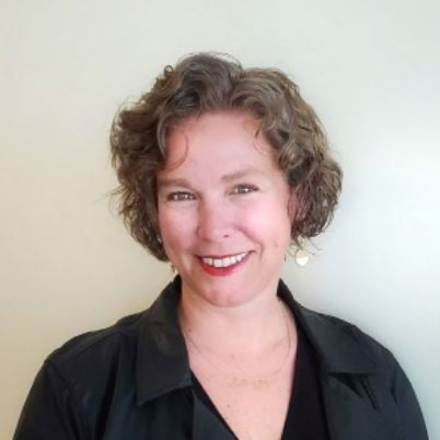
Many of them have seen overdose on the streets, in the neighborhoods in which they’re walking to school or hanging out with their friends,” she said. “Some of them have lost family members to overdose.Brooke Briggance
Deputy Director, FACES for the Future Coalition
Mendoza said if she had learned these skills earlier, she might have been able to help a friend whom she fears may have died of an overdose.
“We’re not really sure where they are right now but we have a feeling that they’re not here because they did a lot of drugs,” she said. “I feel like if I was more educated at that age, I could have helped him or found help.”
Some local university students are also getting involved in overdose reversal training. This year, a new California state Senate bill required that all community colleges and universities provide opioid overdose education and distribute Naloxone. Maia Scarpetta and Rachel Murro, both PhD students at UCSF, organized drug reversal training for the UCSF community by enlisting the help of National Harm Reduction Coalition’s Drug Overdose Prevention and Education Project — aka the DOPE Project — a 20-year-old harm reduction organization that has been featured in CDC reports for its innovative research and practices in community-based naloxone distribution.
“I don’t think that anybody living in SF is not in the presence of drug use, whether it’s your friends, your family, your neighbors, folks that you interact with on a daily basis,” Murro said.
“And I think a lot of us kind of intellectualize it and focus on it from a research perspective, or we’ll learn all the facts we can, but it’s like, what would we do if somebody was actually standing in front of us and needed our help? Which is not out of the realm of possibility at all.”
Click on the link below to read the full article.
In Episode 6 of the podcast series, “The Grassroots Effort to Save Lives: San Francisco and the Overdose Crisis,” find out why students are participating in trainings to learn how to reverse overdoses. Listen to the episode below:
Podcast: PHI’s Bridge Experts on Solutions to the Opioid Crisis
In these High Truth on Drugs and Addiction podcast episodes, host Dr. Roneet Lev speaks with PHI experts working to address the opioid crisis, including Dr. Mary Maddux-Gonzalez, coach with PHI’s National Leadership Academy for the Public’s Health and the California Overdose Prevention Network Accelerator Program; and Arianna Campbell co-founder of PHI’s CA Bridge.
High Truth on Drugs and Addiction host Dr. Roneet Lev speaks with PHI experts who are finding innovative ways to support people dealing with substance use, and discuss how communities can address the opioid crisis.
Episode #145 High Truths on Drugs and Addiction with Dr. Gene Hern on Prehospital Medicine
What role does Prehospital Medicine or First Responders have in treating addiction? Is it just naloxone, or is there more?
On this episode of High Truths on Drugs and Addiction, Dr. Roneet Lev speaks with Dr. Gene Hern, project director of PHI’s EMS Bridge, about the need to bridge the gap between EMS and hospital care in response to the opioid epidemic. Dr. Hern advocates for initiatives such as the distribution of naloxone, connecting patients with substance use navigators and EMS-provided buprenorphine—and shares how this can become a national standard for responding to overdose clusters.
Episode #133 High Truth on Drugs and Addiction with Arianna Campbell on California Bridge MAT program
MAT Medication Assisted Treatment is key for treating opioid addiction. No one should suffer from opioid withdrawal and everyone with an opioid use disorder should receive treatment with compassion and hope. California Bridge assists in providing MAT 24/7 through the emergency departments.
On this episode of High Truths on Drugs and Addiction, Dr. Roneet Lev speaks with Arianna Campbell from PHI’s CA Bridge and her work initiating CA Bridge’s MAT program to treat patients with opioid use disorder.
Learn about these topics in the podcast
- How MAT Medication Assisted Treatment is key for treating opioid addiction.
- Learning about barriers to medication assisted treatment (MAT) and new opportunities to increase access.
- Identifying practical steps they can take to get more clinicians to prescribe addiction treatment in their community.
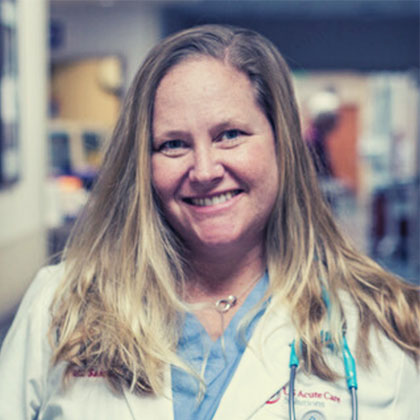
There is a moment when somebody says, “I’m ready for treatment,” and if the system does not support them in that moment, we sometimes lose them.Arianna Campbell, PA-C
Founder, Principal Investigator of PHI’s Bridge Program

It is important for all emergency departments to offer evidence based treatment, but it needs to be a system of care and that system has to include a telehealth option.Arianna Campbell, PA-C
Founder, Principal Investigator of PHI’s Bridge Program
Episode #126 High Truths on Drugs and Addiction on Xing the X Waiver
Now that the X-Waiver is no longer required for clinicians to prescribe addiction treatment, what comes next?
On this episode of High Truths on Drugs and Addiction, Mary Maddux-Gonzalez from PHI’s National Overdose Prevention Network sits down with Dr. Roneet Lev, who served as the first Chief Medical Officer of the White House Office of National Drug Control Policy. Together, they explore what the new legislative move means for providers and how to get more clinicians to prescribe addiction treatment.
Learn about these topics in the podcast
- Understanding the implications of the elimination of the DEA X-Waiver.
- Learning about barriers to medication assisted treatment (MAT) and new opportunities to increase access.
- Identifying practical steps they can take to get more clinicians to prescribe addiction treatment in their community.
This podcast features audio recording from the Dialogue4Health web forum, “End of the X Waiver: A New Frontier in Addiction Treatment.”
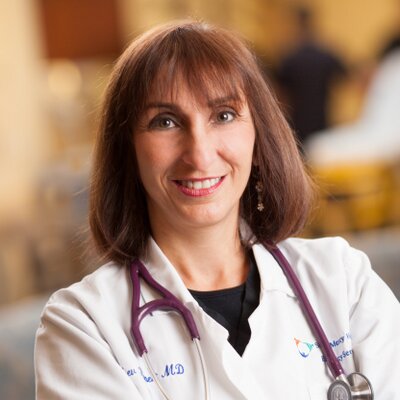
I'm very excited and optimistic for the future of addiction, treatment innovations, and also for prevention… I see a future where every large hospital system has an addiction medicine service.Dr. Roneet Lev
Emergency and Addiction Physician
Work With Us
You change the world. We do the rest. Explore fiscal sponsorship at PHI.
Support Us
Together, we can accelerate our response to public health’s most critical issues.
Find Employment
Begin your career at the Public Health Institute.
